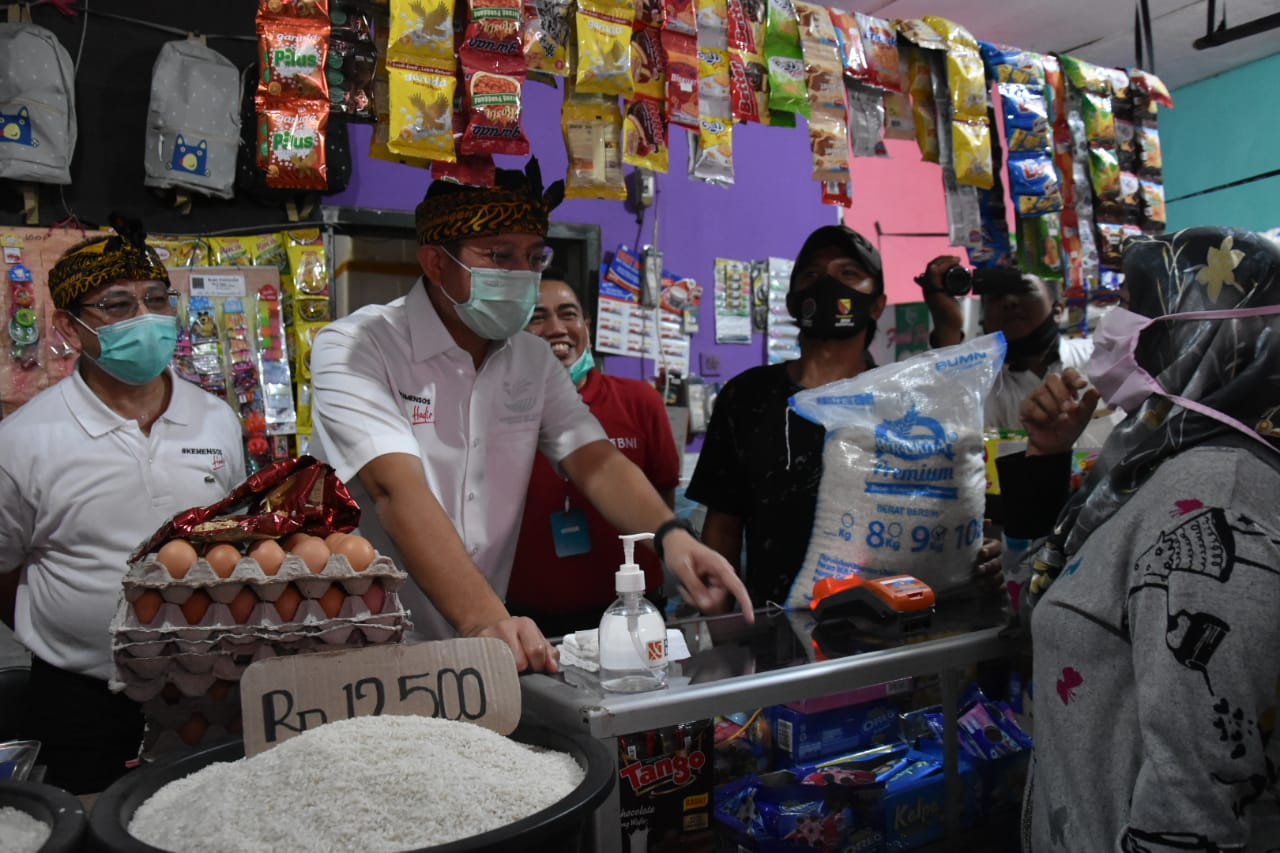KUBE Assistance to Strengthen Economic Resilience in the Middle of a Pandemic

JAKARTA (November 23, 2020) – The Ministry of Social Affairs distributed productive economic assistance totaling Rp47 billion in 2020 to more than 23.000 beneficiaries who are members of the Joint Business Group (KUBE).
Minister of Social Affairs Juliari P. Batubara said “Through KUBE, group members who are poor families can network and develop potential to increase family income. Thus, KUBE can be the right channel to target the Indonesian people who are most affected by the COVID-19 pandemic."
“The COVID-19 pandemic has had a significant impact not only on the health sector but also on the economic sector. The government's various social assistances are expected to help the economic resilience of underprivileged families so that they can get through these difficult conditions," he said.
The amount of productive economic business assistance to each KUBE is determined based on the number of KUBE members. The calculation is the number of KUBE members multiplied by Rp2 million. If each KUBE has 10 members, each KUBE will receive assistance of Rp20 million.
The existence of KUBE, continued the Minister of Social Affairs, is part of social empowerment efforts to restore the economic conditions of underprivileged communities from the impact of COVID-19. He hopes that through KUBE the economic activities of underprivileged communities can continue, and the fulfillment of their basic needs can be improved creatively and innovatively, so as to improve their welfare.
E-Warong KUBE Supports Basic Food Program
The Director General for Handling the Poor at the Ministry of Social Affairs Asep Sasa Purnama revealed that KUBE's business types are very diverse, such as the business of making tempeh, making regional specialties (dodol, chips, cakes, etc), food stalls, convection (making clothes, headscarves, mukenah, etc.), chicken farms, goat farms, and so on.
KUBE, which operates in the basic food sector, has now developed into an e-Warong KUBE that serves Beneficiary Families (KPM) of the Basic Food Program. The Sembako Program is a non-cash food assistance program from the Ministry of Social Affairs under the Directorate General of Handling the Poor which is distributed to underprivileged families. Recipients of the Basic Food Program receive cash assistance of Rp200.000 per month for each recipient of the program. The money can be spent on basic needs at KUBE e-Warung.
“KUBE beneficiaries are also beneficiaries of the Basic Food Program. So the social assistance money cycle continues there, from KPM to KPM," said the Director General.
In order to make the business more focused and achieve its goals, continued Asep, each KUBE will be accompanied by a KUBE Facilitator, starting from the process of establishment to implementation.
“KUBE assistants guide and direct KUBE members in planning, implementing and evaluating business together. This indirectly also improves the skills of members which can build their self-confidence, and of course encourage the growth of a sense of solidarity among members and with other communities in their environment,” said the Director General.
One of the KUBE Companions in Gadingrejo District, Pringsewu Regency, Lampung Province, Prahara Lukita said since the COVID-19 pandemic, the e-Warong business run by KUBE members in the assisted villages has continued. "Alhamdulillah, all KUBEs are still running during the pandemic. The buying and selling process, member meetings, as well as when shopping for groceries are carried out by observing health protocols," she said.
Prahara accompanies 10 KUBE, where each KUBE consists of 10 people. The total is 100 members and all of them are women. “Initially, the women discussed what business to establish. It turned out that he wanted to set up a food stall business. This is based on the fact that in their area there are still very few basic food stalls. Even if there is, the distance is very far and it will take time and money to reach it,” said this Agriculture graduate from the University of Lampung.
Then, she continued, there is an opportunity for these stalls to become providers of food needs for the recipients of the Sembako Program social assistance so that the existing stalls are then transformed into e-Warong.
Every month, KUBE administrators serve the social assistance recipients who use the social assistance money to shop for basic necessities.
“In addition, this KUBE also serves electricity token sales, cash withdrawals, and transfers. The types of commodities sold are also increasingly diverse, ranging from children's snacks, gallon mineral water, LPG gas," she said.
Another story of mentoring is Riska Safitri, a KUBE companion in Kuantan Singingi Regency, Riau Province.
The KUBE assisted by Riska consists of a group of mothers receiving social assistance from the Family Hope Program (PKH). This is a form of complementarity in social assistance from the Ministry of Social Affairs so that in the future PKH recipients can be economically empowered and independent.
"Productive economic businesses that are being carried out include renting tents and chairs for parties, selling basic necessities, and cultivating livestock," said Riska.
She said that through this business group, women learned to manage finances, communicate in teams, and work hand in hand to grow the businesses they built together.
 English
English
 Bahasa
Bahasa
